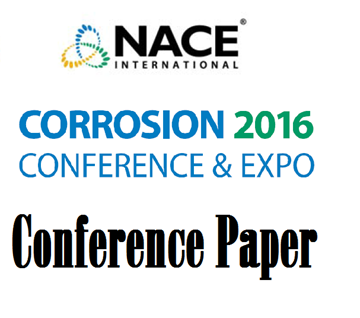Search
07215 Nickel Base Alloys and High Alloyed Stainless Steels for Heat Exchangers and other Applications in Chlorinated Seawater
Also Purchased
07248 Evaluation of Materials for Seawater Plate Heat Exchanger Applications
Product Number:
51300-07248-sg
ISBN:
07248 2007 CP
Publication Date:
2007
$20.00
Crevice Corrosion Performance of High Grade Stainless Steels and Ni-Based Alloys in Natural And Treated Seawater
Product Number:
51316-7196-SG
ISBN:
7196 2016 CP
Publication Date:
2016
$20.00
07249 The Use of Corrosion Resistant Alloys (CRAs) in Compact Plate Heat Exchangers in Seawater
Product Number:
51300-07249-SG
ISBN:
07249 2007 CP
Publication Date:
2007
$20.00




